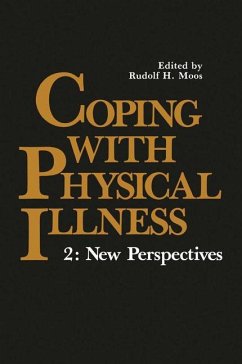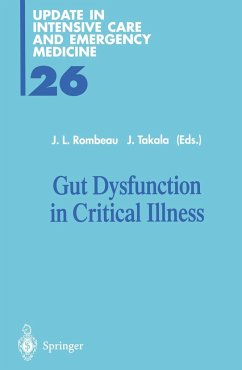
Coping with Physical Illness
2: New Perspectives
Herausgegeben: Moos, Rudolf

PAYBACK Punkte
20 °P sammeln!
This book provides new ideas about how patients and their fami lies cope with serious health crises. Biomedical knowledge has expanded abruptly in the past decade during which time diag nostic and treatment procedures have become unusually specific and effective. Similarly, important advances have taken place in our understanding of the central role of psychosocial factors in health and illness. Recent trends have sparked the formulation of useful concepts of coping skills and social resources and have empha sized the value of an active assertive role for patients in the pro cess of obtaining ...
This book provides new ideas about how patients and their fami lies cope with serious health crises. Biomedical knowledge has expanded abruptly in the past decade during which time diag nostic and treatment procedures have become unusually specific and effective. Similarly, important advances have taken place in our understanding of the central role of psychosocial factors in health and illness. Recent trends have sparked the formulation of useful concepts of coping skills and social resources and have empha sized the value of an active assertive role for patients in the pro cess of obtaining health care. The emergence of subspecialties such as behavioral medicine and health psychology has stimulated renewed interest in these areas. Moreover, the growth of holistic medicine and a biopsychosocial orientation highlights the contri bution of a psychosocial perspective in an integrated framework for providing health care. To cover these diverse trends, I offer a unified conceptual approach for understanding the process of coping with the crisis of physical illness and identifying the underlying adaptive tasks and domains of coping skills involved in this process. The first half of the book covers coping with selected health crises, such as birth defects and perinatal death, childhood and adult cancer, and chronic physical disabilities.












